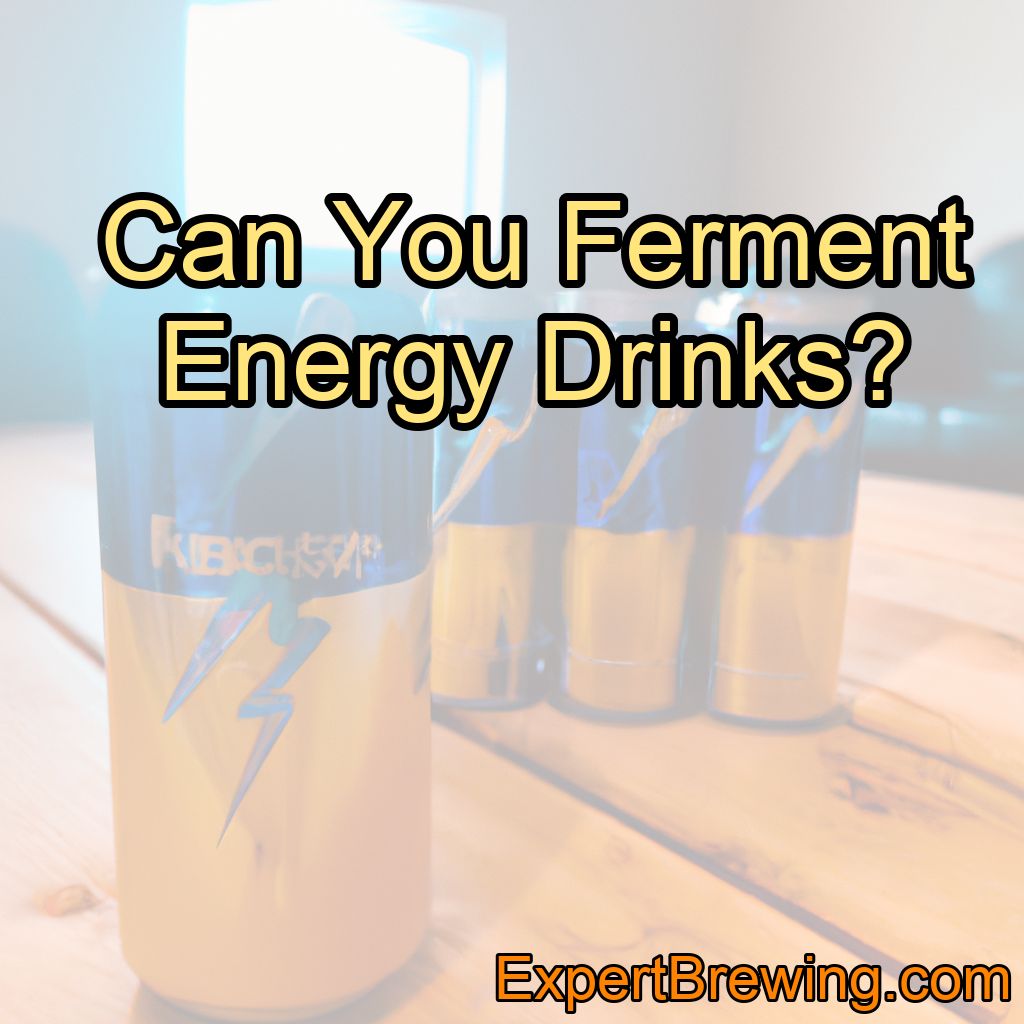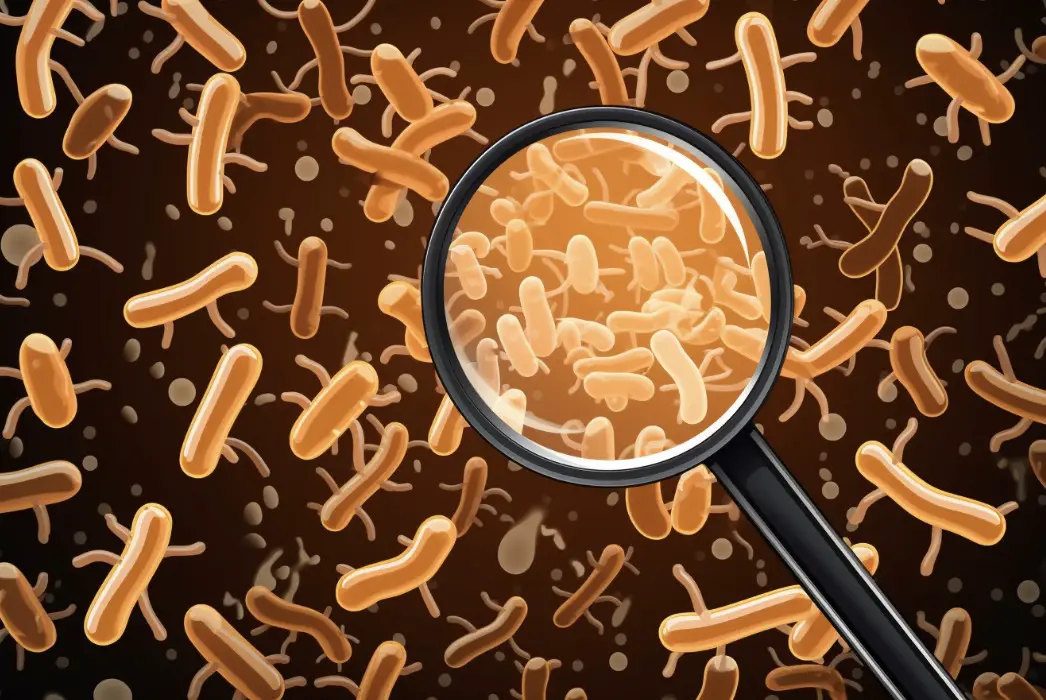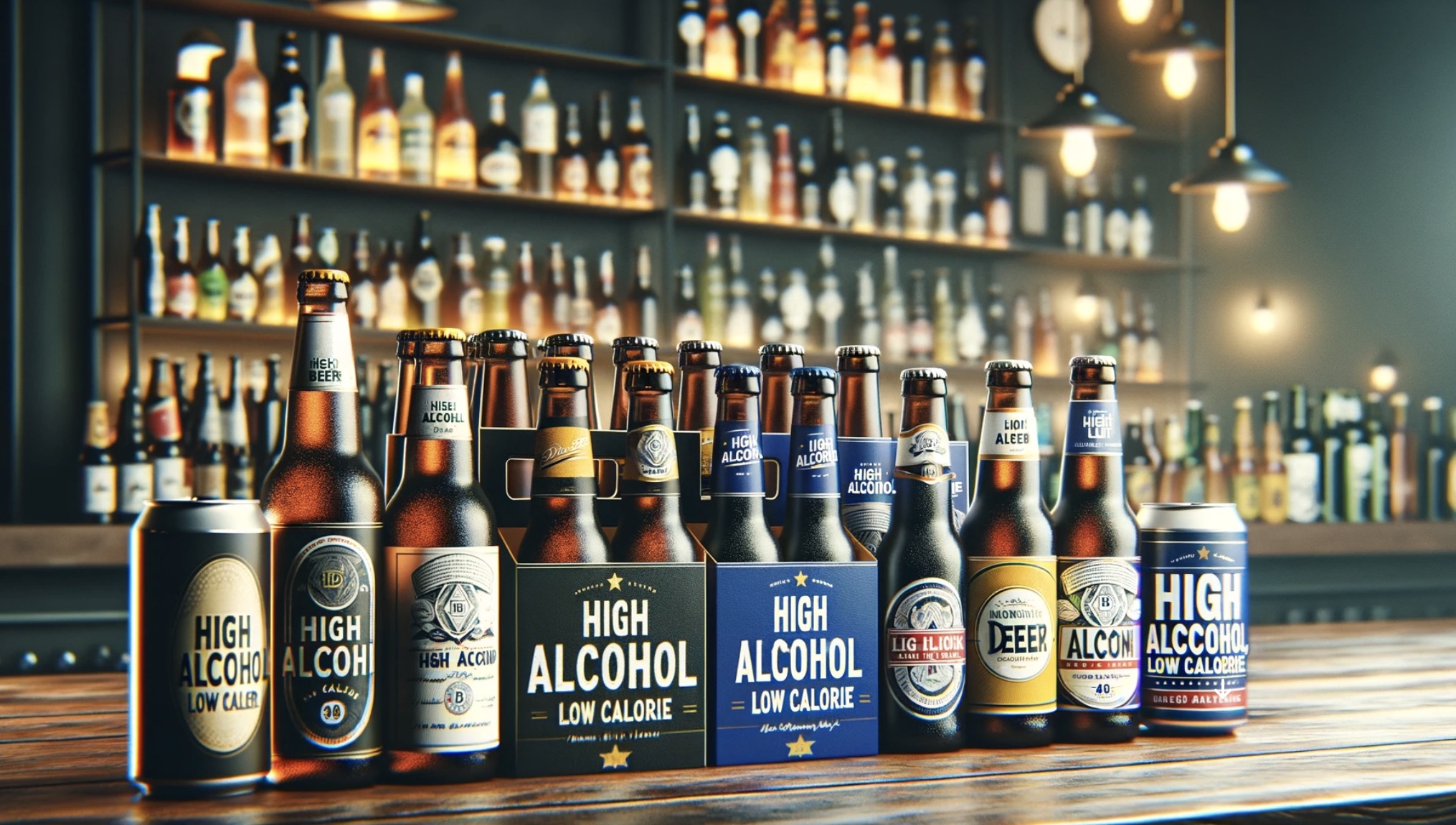As an experienced brewer, I’ve always been curious about the possibilities of fermenting different substances. I’ve experimented with various fruits, grains, and even vegetables in my quest to create unique and interesting fermented beverages. But there’s one question that has always piqued my curiosity, and that is: can you ferment energy drinks?
The short answer is yes, you can ferment energy drinks, but the end result may not be what you expect.In this blog post, I will dive deep into the process of fermenting energy drinks, discussing the potential challenges, the science behind it, and sharing my own personal experience with this unconventional brewing experiment. So, let’s get started!
The Science Behind Fermentation
Before we delve into the specifics of fermenting energy drinks, it’s important to understand the basic science behind fermentation. Fermentation is a metabolic process that occurs when microorganisms, such as yeast or bacteria, convert sugars into other products, like alcohol or acids. This is the foundation for creating fermented beverages like beer, wine, and kombucha.
To successfully ferment a beverage, you need a few key ingredients:
1. Sugars: These are the primary food source for the microorganisms that will carry out the fermentation process.
2. Microorganisms: These are the yeast or bacteria that will consume the sugars and produce alcohol or other byproducts.
3. A suitable environment: Temperature, pH, and other factors can all impact the success of your fermentation.
So, how do energy drinks stack up when it comes to these essential components? Let’s find out.
Sugars in Energy Drinks
One of the main ingredients in most energy drinks is sugar. In fact, some energy drinks contain a staggering amount of sugar – often more than a can of soda. This is good news for fermentation since, as mentioned earlier, sugars are a necessary component for the process to occur.
However, not all sugars are created equal when it comes to fermentation. Simple sugars, like glucose and fructose, are easily consumed by yeast and bacteria, making them ideal for fermentation. Complex sugars, like maltodextrin, may not be as easily fermented and could lead to a less successful fermentation process.
Many energy drinks contain a mix of simple and complex sugars, so it’s important to keep this in mind when attempting to ferment them.
Microorganisms and Energy Drinks
The next key component for successful fermentation is the presence of microorganisms, such as yeast or bacteria. Most energy drinks are pasteurized, which means that any naturally occurring microorganisms have been killed off during the manufacturing process. This means that you’ll need to introduce your own yeast or bacteria to get the fermentation started.
There are many different types of yeast and bacteria available for fermentation, each with its own unique properties and flavor profiles. For fermenting energy drinks, you may want to experiment with different strains to find the one that works best with the particular sugar composition and flavor profile of your chosen energy drink.
The Role of Caffeine in Fermentation
One of the main selling points of energy drinks is their caffeine content. Caffeine is a stimulant that can provide a temporary boost in energy and alertness. However, when it comes to fermentation, caffeine can be a bit of a wild card.
Some studies have suggested that caffeine may actually inhibit the growth of some yeast strains, which could potentially impact the success of your fermentation. On the other hand, other research has indicated that caffeine may have little to no effect on yeast growth, depending on the concentration and the specific strain of yeast involved.
So, while it’s unclear exactly how caffeine will impact your energy drink fermentation, it’s something to be aware of and potentially experiment with when selecting your yeast strain.
Fermenting Energy Drinks: My Personal Experience
Now that we’ve covered the basic science behind fermenting energy drinks, it’s time to dive into my own personal experience with this unconventional brewing experiment.
Choosing the Energy Drink
The first step in fermenting energy drinks is selecting which one to use. I decided to go with a popular brand that contained a high sugar content and a mix of simple and complex sugars.
Preparing for Fermentation
Before beginning the fermentation process, I needed to introduce my own yeast to the energy drink. I chose a champagne yeast, known for its ability to ferment a wide range of sugars and its high alcohol tolerance.
I rehydrated the yeast in warm water with a little sugar to get it started, then added it to the energy drink in a sanitized fermentation vessel.
Monitoring the Fermentation Process
Over the next few days, I monitored the fermentation process closely, checking for signs of yeast activity, such as bubbling and the production of CO2. To my surprise, the fermentation seemed to be going well, with plenty of activity and the development of a strong, yeasty aroma.
The Final Result
After about a week of fermentation, I decided to taste the concoction. The result was… interesting. The flavor was a mix of the original energy drink, with its sharp, fruity notes, and a strong, yeasty, almost sour taste from the fermentation. It was certainly different, but not entirely unpleasant.
The Pros and Cons of Fermenting Energy Drinks
So, is fermenting energy drinks a good idea? Here are some pros and cons to consider:
Pros
1. Unique flavor profiles: Fermenting energy drinks can result in some interesting and unexpected flavor combinations.
2. High sugar content: The high sugar content of many energy drinks provides ample fuel for fermentation.
Cons
1. Caffeine: The caffeine content of energy drinks could potentially impact the fermentation process, depending on the yeast strain used.
2. Complex sugars: The presence of complex sugars in many energy drinks could make for a less efficient fermentation process.
3. Taste: The end result may not be to everyone’s liking, as the flavors can be quite intense and unusual.
Conclusion: Can You Ferment Energy Drinks?
In conclusion, yes, you can ferment energy drinks, but the end result may not be what you expect. The process is certainly possible, but there are a few factors to consider, such as the sugar composition, caffeine content, and yeast strain. My personal experience with fermenting energy drinks was an interesting experiment, and while the final product may not be for everyone, it’s a unique and unconventional way to explore the world of fermentation.
To sum up, here are 10 facts about fermenting energy drinks:
1. Energy drinks can be fermented due to their high sugar content.
2. Simple sugars, like glucose and fructose, are ideal for fermentation, while complex sugars may be less efficient.
3. Most energy drinks are pasteurized, so you’ll need to introduce your own yeast or bacteria.
4. There are many different types of yeast and bacteria available for fermentation, each with its unique properties and flavor profiles.
5. Caffeine may inhibit the growth of some yeast strains, potentially impacting the success of your fermentation.
6. Fermenting energy drinks can result in unique and unexpected flavor combinations.
7. The presence of complex sugars in many energy drinks could make for a less efficient fermentation process.
8. The taste of fermented energy drinks may not be to everyone’s liking.
9. Experimenting with different energy drinks, yeast strains, and fermentation conditions can result in a wide range of outcomes.
10. Fermenting energy drinks is an unconventional way to explore the world of fermentation and create unique beverages.
FAQs
Do energy drinks metabolize alcohol?
No, energy drinks do not metabolize alcohol.
Can energy drinks cause bacteria?
No, energy drinks do not directly cause bacteria. However, consuming sugary or acidic energy drinks may create an environment in the mouth that is conducive to bacterial growth and tooth decay.
What happens if you drink an energy drink everyday?
Drinking an energy drink every day can lead to negative health effects such as increased heart rate, high blood pressure, anxiety, and insomnia. It can also lead to addiction and dependence on caffeine. It is recommended to limit consumption of energy drinks and opt for healthier alternatives such as water, herbal tea, or natural fruit juices.
Why are energy drinks not good for rehydration?
Energy drinks are not good for rehydration because they contain high amounts of caffeine and sugar, which can actually dehydrate the body further. Additionally, the high levels of caffeine can cause increased heart rate and blood pressure, leading to potential health risks. It is better to consume plain water or electrolyte-rich beverages for proper rehydration.
What happens if you drink alcohol and energy drinks?
Drinking alcohol and energy drinks together can lead to increased alcohol consumption, impaired judgment, and increased risk-taking behaviors. It can also lead to dehydration, heart palpitations, and other adverse health effects.
Can energy drinks ferment?
No, energy drinks cannot ferment as they do not contain any fermentable sugars or yeast.




